...And Here, Darn it, Are The Heartbreakers
Final Compilation/Analysis by ANN EMedia Producer Paul
Plack
 It is both the most "fun," and most
difficult task, facing the ANN staff at the end of every year --
determining who, or what, did the most to promote the cause of
aviation in the past 365 days... while also chastising those people
or entities that did all they could to undermine the many successes
the aerospace community has managed to accomplish.
It is both the most "fun," and most
difficult task, facing the ANN staff at the end of every year --
determining who, or what, did the most to promote the cause of
aviation in the past 365 days... while also chastising those people
or entities that did all they could to undermine the many successes
the aerospace community has managed to accomplish.
Alas, 2010 saw more than its fair share of downers, aviation-wise.
Sure, "stuff" happens... but a few folks, issues, or entities
seemed to go out of their way to create problems for the world of
aviation.
So... it is ANN's annual obligation to recognize a dozen
of our Aero-Heroes/Heartbreakers for 2010... in something of
an informal order -- Saving the 'best' for last.
Let us know what you think of our selections... whom YOU would
have liked be included, or omitted, from such a list. In the
meantime, we hope those who had something to do with this year's
selections think a little more positively about the welfare of this
industry, so that future lists become harder and harder to
catalog.
Be it ignorance, arrogance or just plain incompetence, these
were the folks or topics that made our lot a whole lot more
difficult and immeasurably injured the aviation world in the past
year.
Shame on those issues, folks, or groups that made our lot so
much tougher in 2010...
Aero-Heartbreakers -- Napolitano, Pistole, and False Hope
It is difficult, if not unprecedented, to launch a government
program that doesn't grow beyond its original vision and bring down
unintended consequences. There is no better example for most
Americans than the huge, rolling boulder known as "homeland
security." It quickly became clear, following the creation of the
Department of Homeland Security (DHS) and Transportation Security
Administration (TSA) following 9/11, that we were set on a path to
a larger, much more intrusive government presence in our lives,
significant financial impact in both government and the private
sector, and a near-complete disconnect between bang and buck.
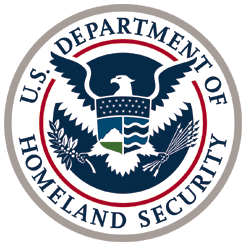
With the exception, of course, that every little bang would turn
loose lots more bucks.
Some actual security experts warned from the start that there's
really nothing that can be done within the paradigm of a large,
government program to ensure protection of any airliner, train,
bus, building or seaport from a lone, motivated saboteur. It is the
nature of any organization as large as an army, society or national
economy that the larger and more powerful it grows, the less
capable it becomes in the detection and mitigation of tiny threats.
This is the premise of asymmetrical warfare.
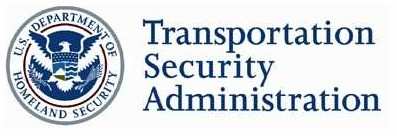
The people we call terrorists are keenly aware of this. These
sociopaths understand clearly that it is not necessary to cause
mass casualties to do real damage to the US. Even the casualties on
9/11 were less than half the number of deaths from natural causes
on any average day in the US. The whole point of terrorism is to
use our imaginations as a force-multiplier, pushing us to see a
threat in every corner of our daily existence, and practice
economic self-immolation in response.
And so, the government's real enemy is our imaginations, not the
next batch of guys with box cutters or exploding underpants. This
political reality has forced the US homeland security effort toward
what is known, even in the popular vernacular, as "Security
Theater." Terrorism relies on creating events which are simply
another tabloid murder when analyzed logically, but which are
framed in a way that inspires us to fear similar threats in our own
everyday lives. The government responds by pacifying us with an
immense show of concern, force, and spending. It's mission is to
calm our imaginations, because it can't really do much to mitigate
the actual threats.
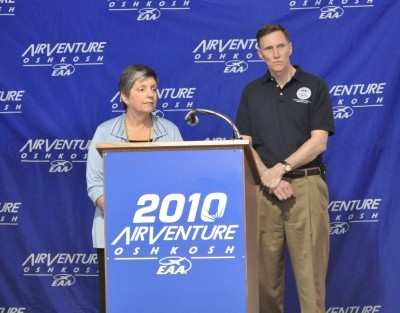
Napolitano, Pistole
Anecdotal evidence suggests a growing number of Americans are
tiring of the charade, expecting Congress and the bureaus it has
created to move on from Security Theater's focus on inanimate
objects to behavioral profiling, or figuring out how to keep
terrorists, not their shampoo and nail clippers, off airliners.
Some had reason to hope that new Homeland Security Secretary Janet
Napolitano, the former Arizona governor and attorney general, would
bring clear thought and logical priorities to the fight against
terrorism. After all, who better than the former chief executive of
the state at the vortex of the border security debate to appreciate
the difference between theater and effectiveness, right?
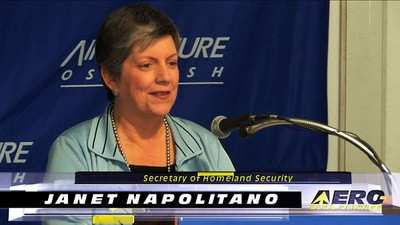
Unfortunately, Napolitano has looked more like the Democrat
governor who earned White House favor with her 2008 endorsement of
President Obama, then parlayed that into a convention appearance
and eventual cabinet-level gig in Washington. The American
vernacular in 2010 tagged her, and even her bureau, with the
nickname, "Big Sis," especially after the escalation in the
invasiveness of airport security screening last year.
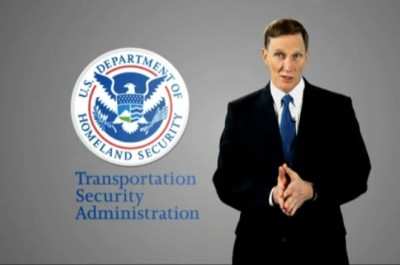
Likewise, hopes were high for new TSA Administrator John
Pistole. After the first two Obama nominees for the post fell apart
under vetting by the US Senate, Pistole looked like a breath of
fresh air. Surely, a guy who'd served as Deputy Director of the FBI
for six years since 9/11 would bring to TSA an appreciation for
intel-based detection of threats, right?
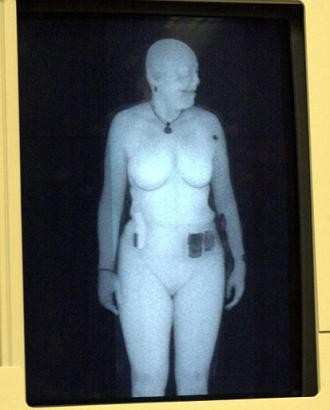
One of 2010's big disappointments has been the extent to which
Pistole left behind any appreciation for intel-based protocols, but
apparently brought with him a high level of comfort with the idea
of frisking people. He's been fond of responding to criticism of
aggressive pat-downs by noting it's routine for suspects
encountered by law enforcement. The implication is clear - to
Pistole, we're all suspects now. The FBI's primary mission is
stopping crime which has reached the interstate level, which
requires serious work behind the scenes. But the agency also lives
in a world where the Fourth Amendment is a nuisance to be worked
around. It's clear which paradigm is at work at TSA.
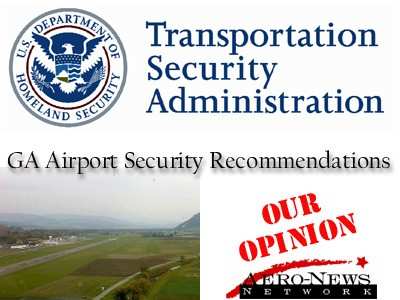
Both Napolitano and Pistole dug in to defend Security Theater
during 2010, both domestically and internationally, but there were
a few signs of hope during the year. A growing contingent of
frequent travelers are coming to view the TSA as a bigger hassle
than terrorism, which could eventually bring pressure to stop the
waste. Representative John Mica, a Florida Republican who helped
author the legislation which created TSA, told airports they should
reject the agency in favor of private contractors for operating
airport checkpoints. (The gesture might have been less hollow if
private screeners were allowed to be any less invasive than
government ones, or had Mica proposed defunding or otherwise
turning back the plague he helped create.) And after his first
intimate contact with general aviation at EAA AirVenture Oshkosh,
Pistole was even willing to admit the so-called "Large Aircraft
Security Program" which would bring airline-style inefficiencies to
business aircraft operators, needed work.
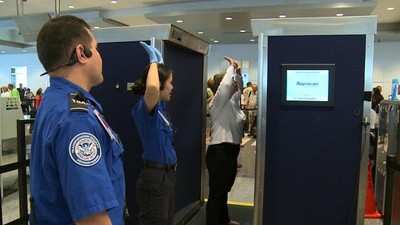
Perhaps the very fact that terms such as "Big Sis" and "Security
Theater" have reached the street is also a sign of hope. Talk radio
really wanted to move on to other topics in the days before
Thanksgiving, but listeners wouldn't stop calling to discuss the
pat-downs. An e-mail containing a satirical TSA bumper-sticker
campaign showed one which read, "We Offer Grope Discounts," and
went viral late last year. As enhanced screenings continue as a
staple of late-night TV comedy, more and more people in everyday
life seem to know what the Fourth Amendment actually says, a
milestone even our educational system couldn't achieve.
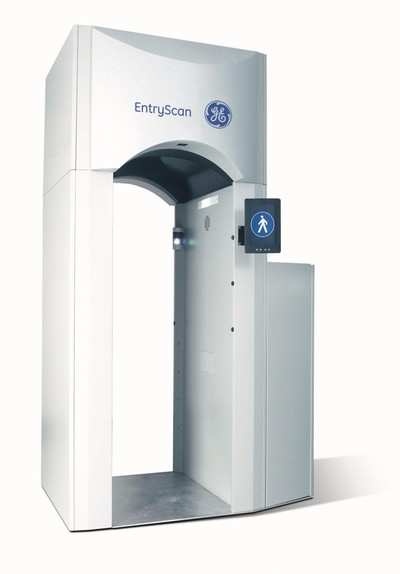
To the extent the bigger threat from terrorists is in our
imaginations, it's unrealistic to think Security Theater will go
away anytime soon. If things do change, perhaps our leaders will
excuse a little cynicism during the transition, given the
disappointments named Napolitano and Pistole.
 ANN's Daily Aero-Term (05.05.25): Circle To Runway (Runway Number)
ANN's Daily Aero-Term (05.05.25): Circle To Runway (Runway Number) ANN's Daily Aero-Linx (05.05.25)
ANN's Daily Aero-Linx (05.05.25) NTSB Prelim: De Havilland DHC-1
NTSB Prelim: De Havilland DHC-1 Classic Aero-TV: The Boeing Dreamliner -- Historic First Flight Coverage
Classic Aero-TV: The Boeing Dreamliner -- Historic First Flight Coverage Airborne-NextGen 05.06.25: AF Uncrewed Fighters, Drones v Planes, Joby Crew Test
Airborne-NextGen 05.06.25: AF Uncrewed Fighters, Drones v Planes, Joby Crew Test












